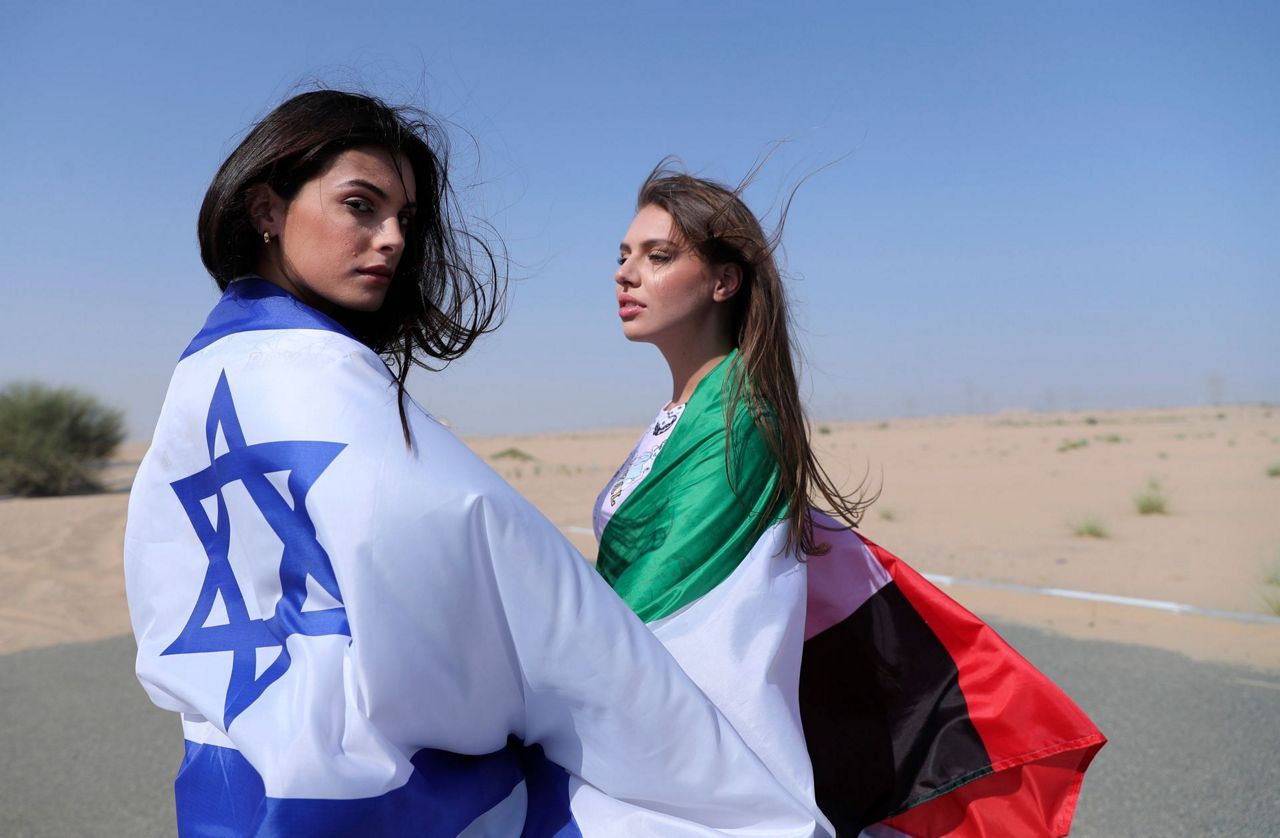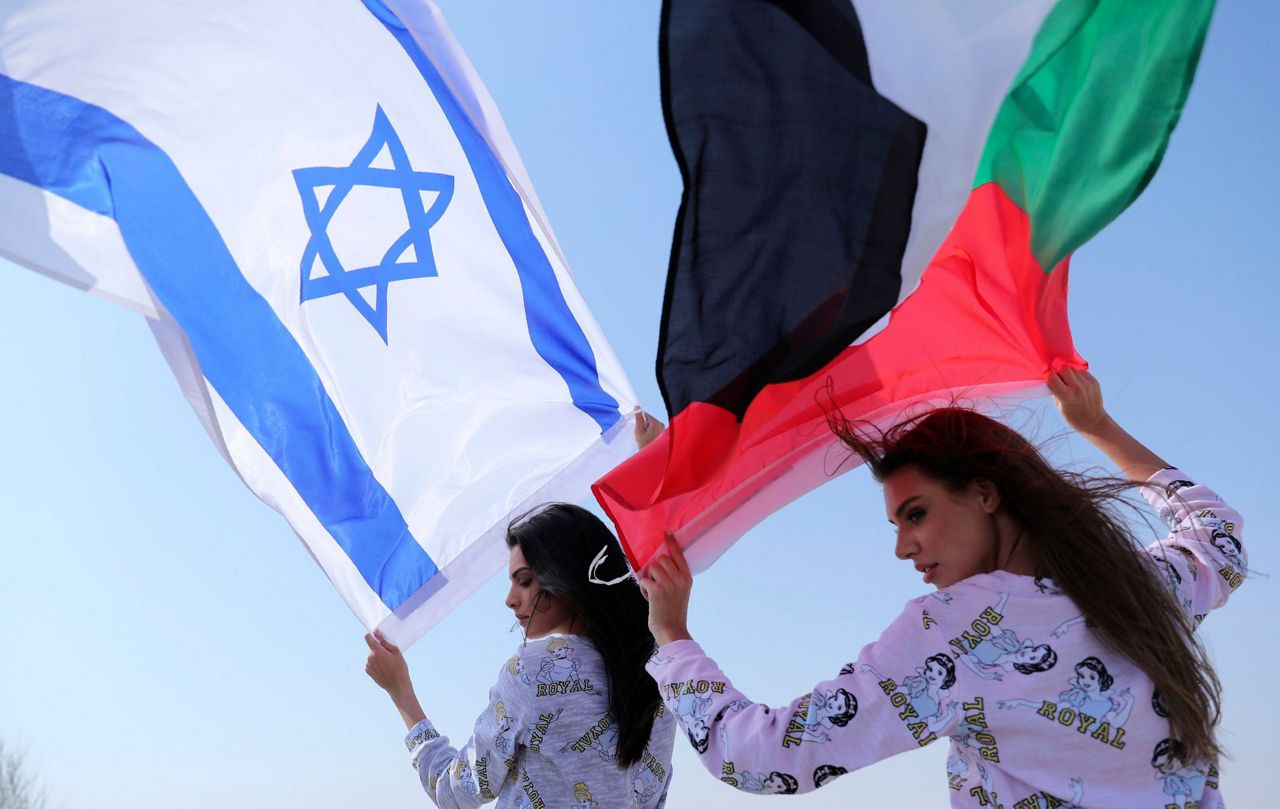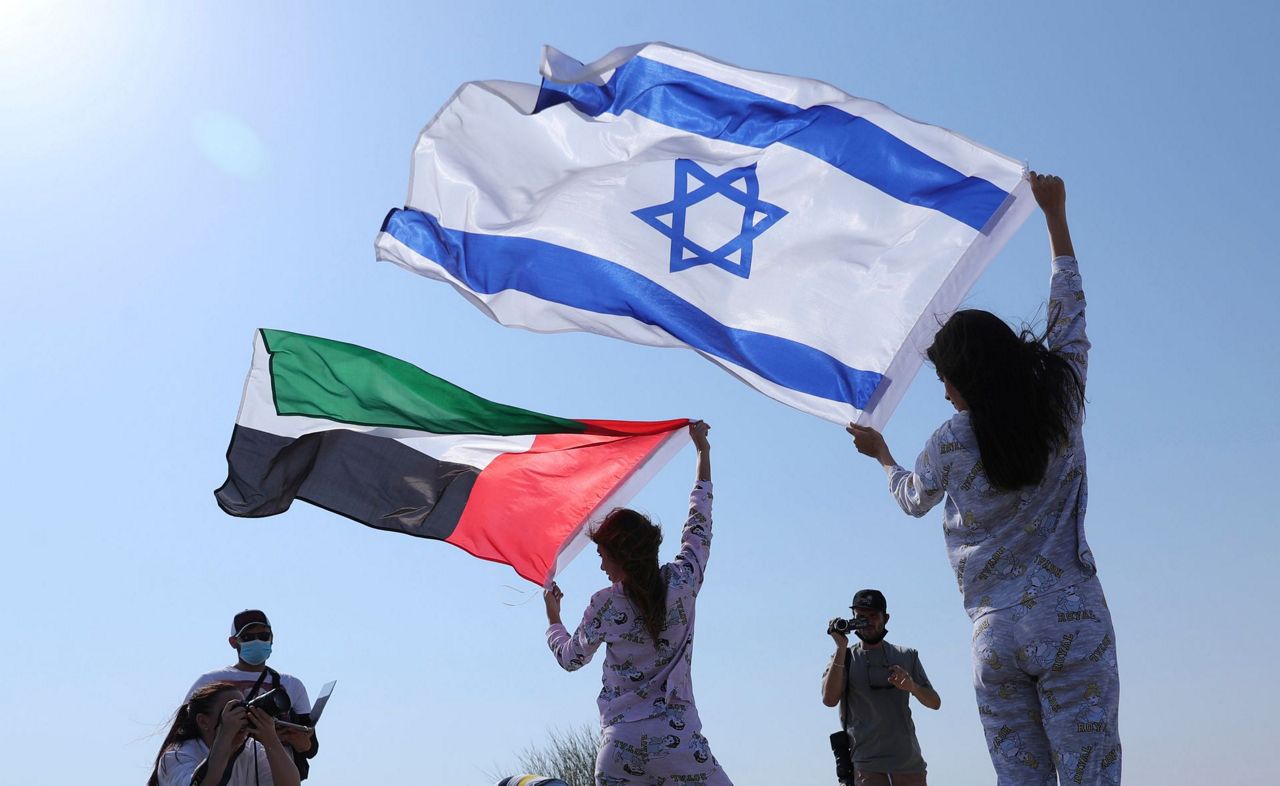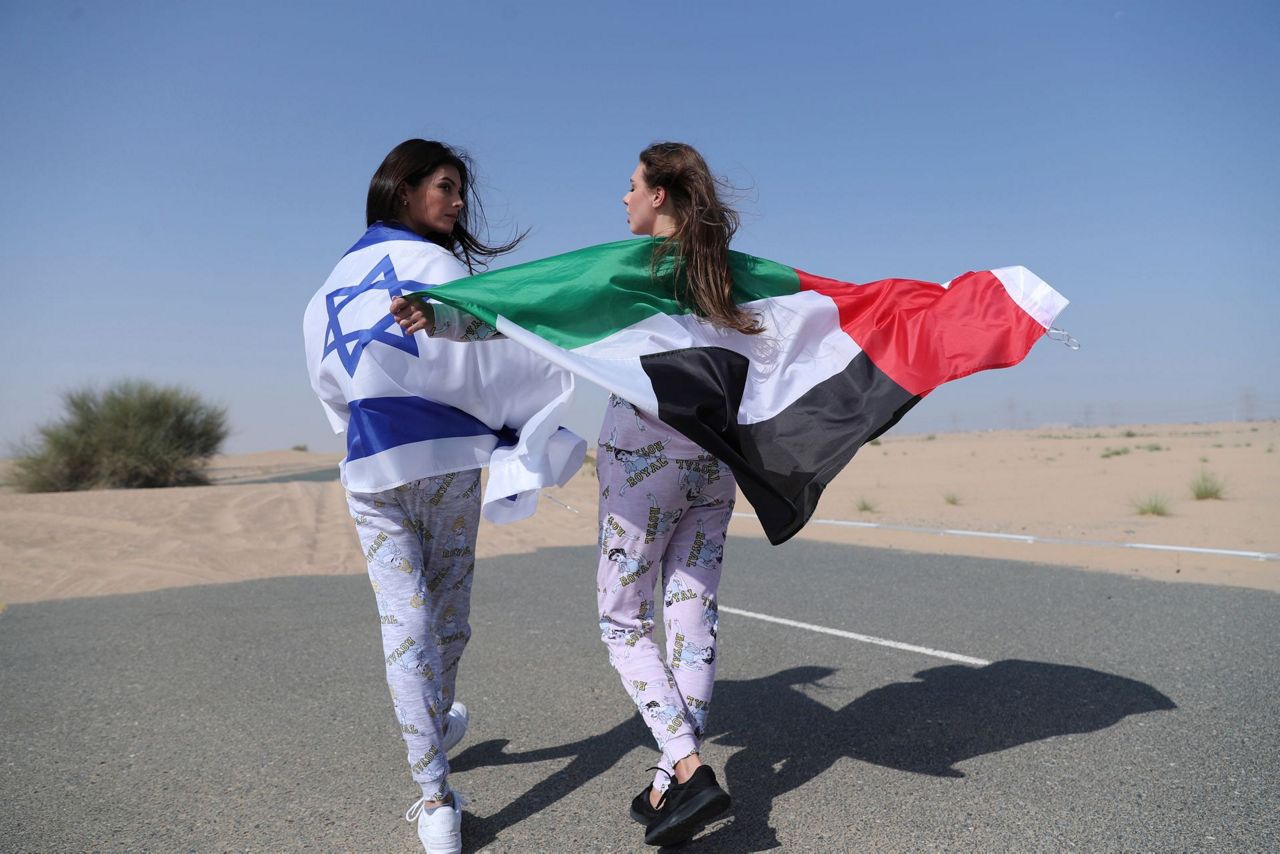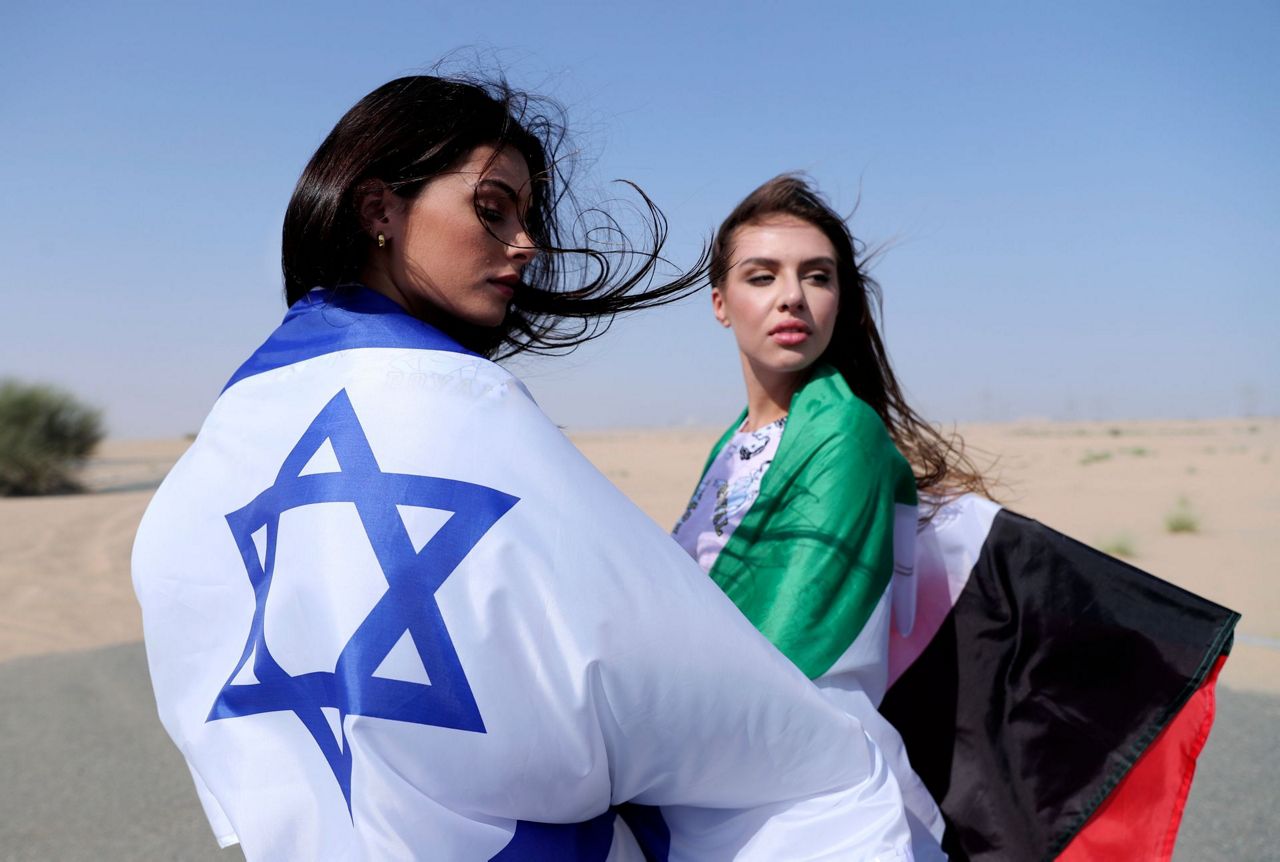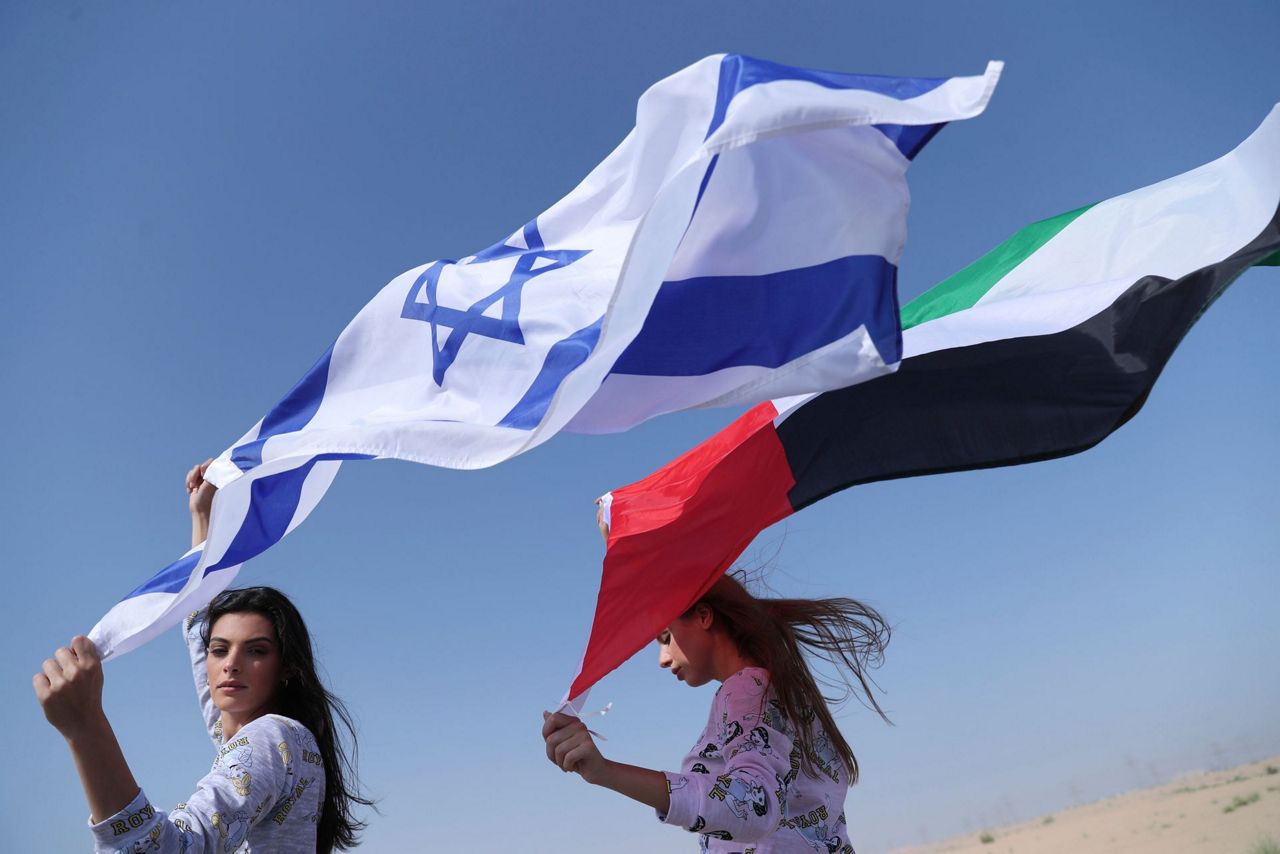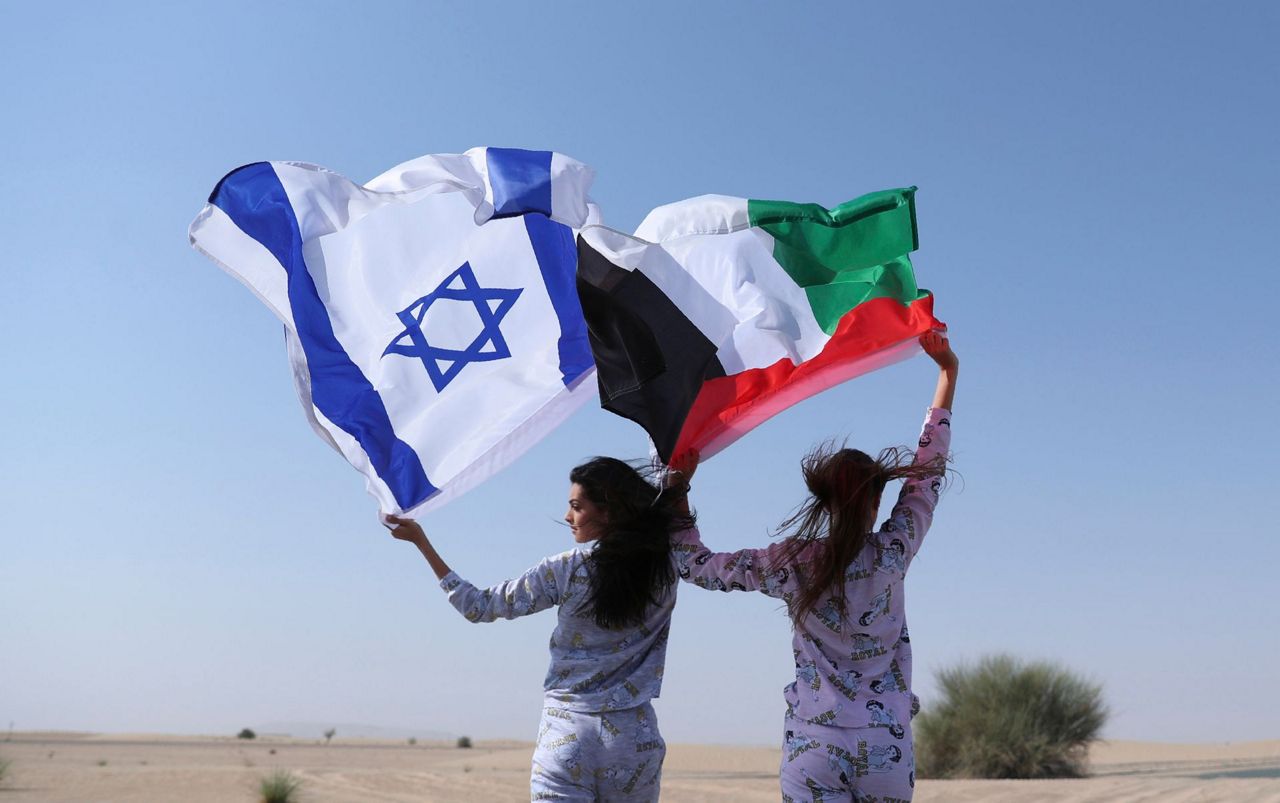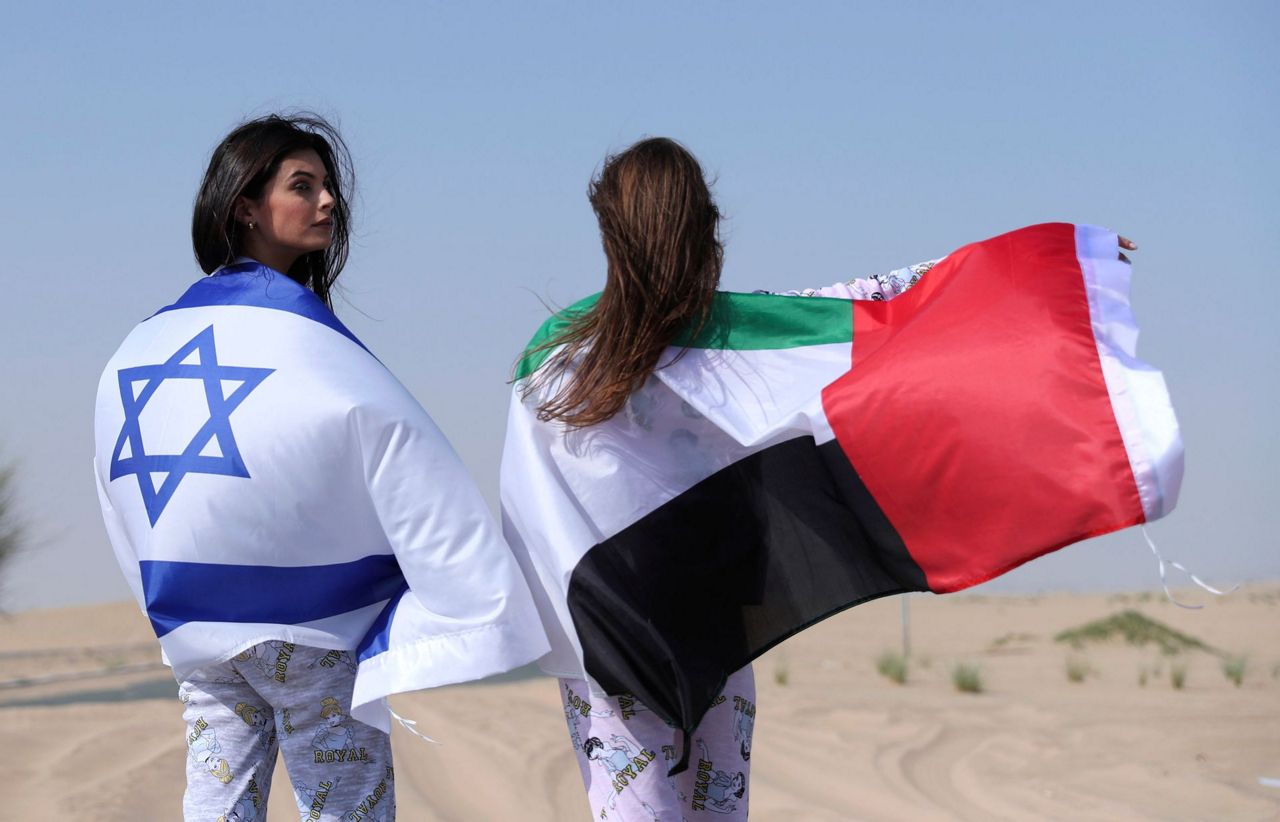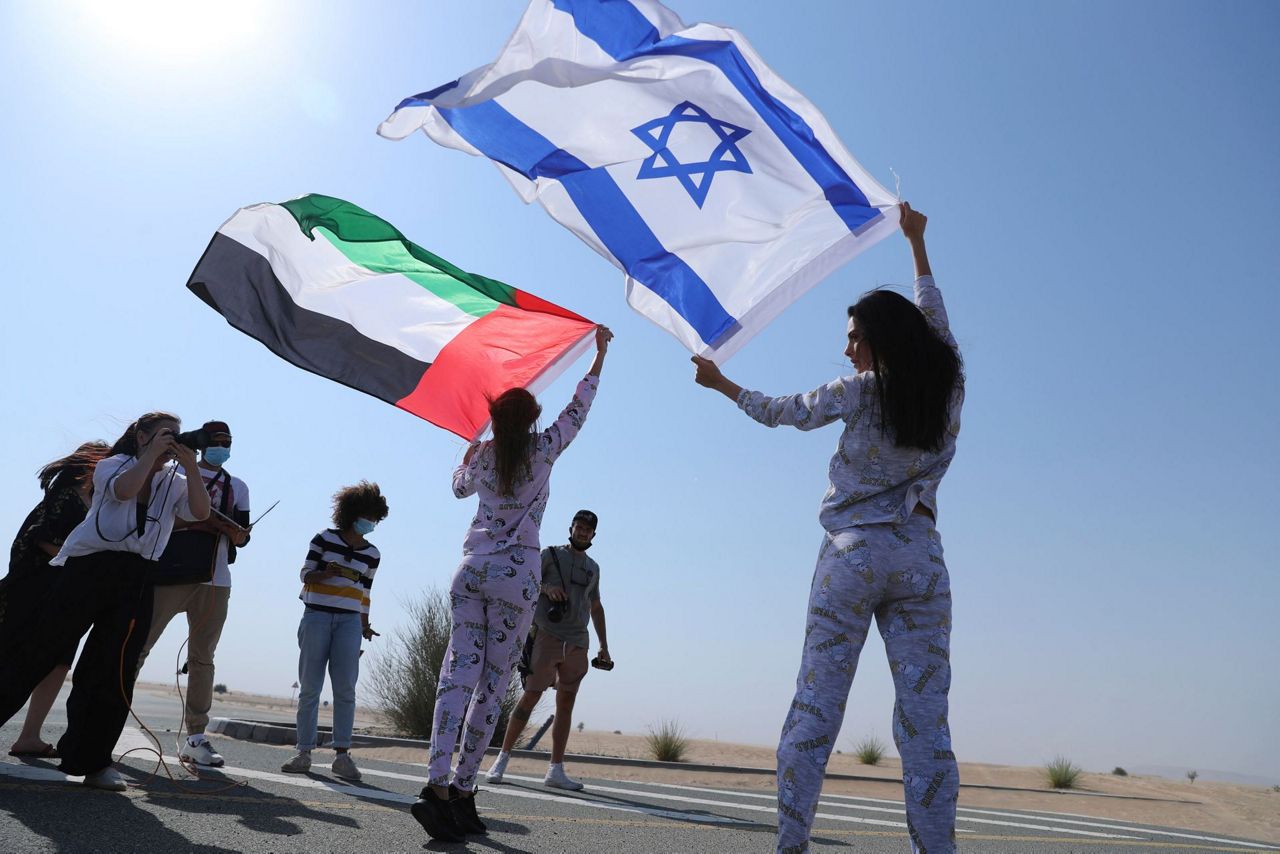DUBAI, United Arab Emirates (AP) — It wasn't Camp David or the White House lawn, but for a brief, breezy moment on Tuesday, the Israeli flag fluttered alongside the four-colored banner of the United Arab Emirates on the sand dunes in Dubai.
The unusual snapshot on the part toward normalization between the two countries, which began with a U.S.-brokered deal on Aug. 13, involved pajama-wearing models instead of diplomats.
Israeli model May Tager said it meant the world to her to be in Dubai for the shoot.
“I am very honored to be the first Israeli model to shoot here," she told The Associated Press. “I am very proud to ... represent my country and just be here.”
She added: "I am feeling very safe to say that I am from Israel.”
The 21-year-old came into the UAE on her Danish passport as traveling on an Israeli one remains complicated despite moves by the two countries to start telephone service and other outreach. The first commercial passenger flight between the two nations also took place last week, though Tager came in on a different commercial flight.
Then came the breezy shoot: In the desert just on the outskirts of Dubai's skyscraper-studded downtown, wearing Delta Israel's new Princess collection of loungewear, Tager waved Israel's blue-and-white flag bearing the Star of David. Next to her was Anastasia Bandarenka, a Dubai-based model originally from Russia, who waved the Emirati flag.
Tager's loungewear — pajamas for the couture-less — bore the likeness of Disney's Cinderella. Bandarenka sported Snow White. The two outfits by the Israeli fashion brand Fix also had the word “ROYAL” across them.
Models seem to be everywhere in Dubai, from the social-media-minded flight attendants to others hawking brands in this country. But Tager's appearance in Dubai comes as Israel hopes for billions of dollars in trade with the UAE, particularly in the tech and tourism industries.
Brands like Delta Israel hope Dubai also propels them into other Mideast markets — ones previously shut over the decades-long boycott by Arab nations supporting Palestinians seeking an independent state.
“We just need the ability to do this and we will do it," CEO Anat Bogner told the AP. "The things that stop us from doing this is a political issue and if there is no problem with the political issue then we are looking at those countries same we are looking other countries in Europe or the U.S.”
___
Follow Fay Abuelgasim on Twitter at www.twitter.com/fayabuelgasim.
Copyright 2020 The Associated Press. All rights reserved. This material may not be published, broadcast, rewritten or redistributed without permission.



